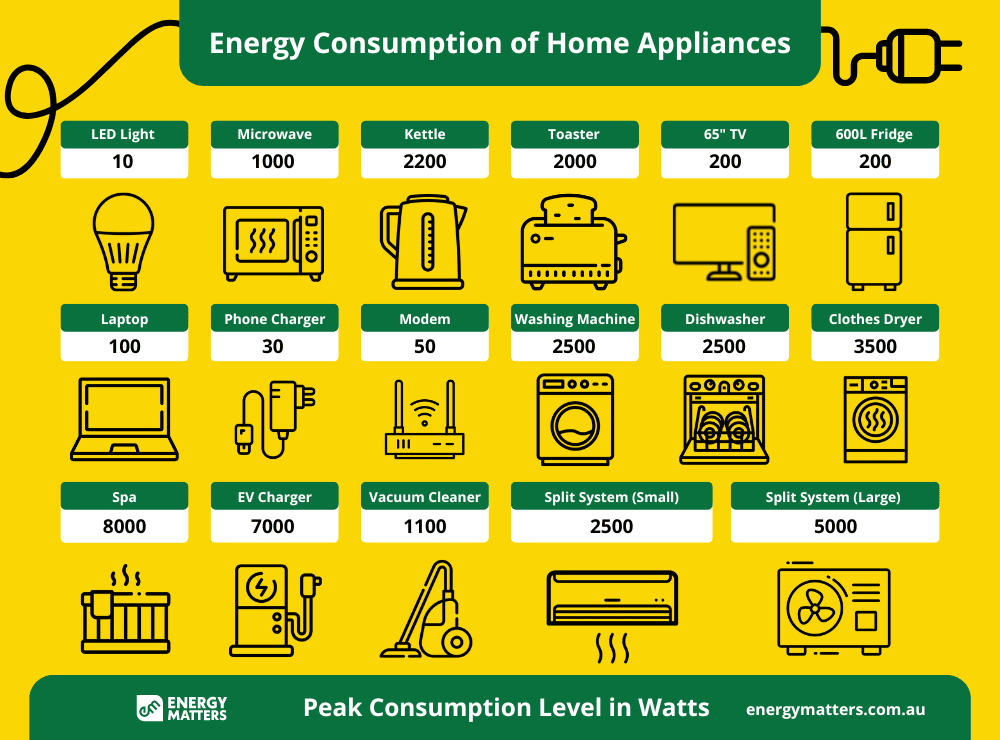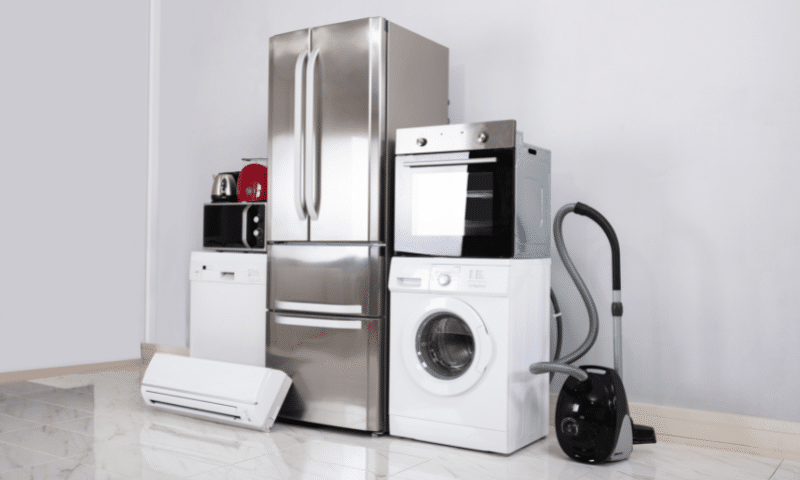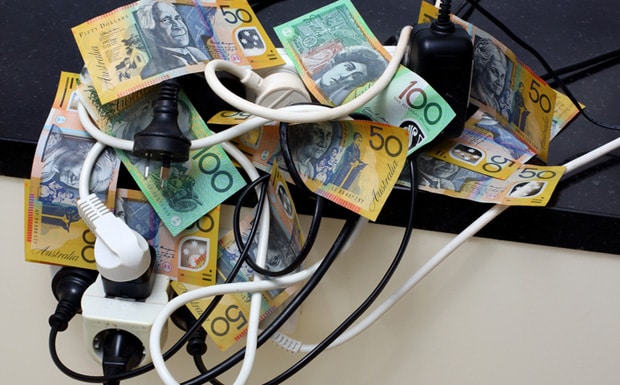Electricity is a basic necessity in our daily lives. It is important to understand how we use it to reduce energy costs and minimise our carbon footprint. With the rising costs of electricity and increasing concerns about climate change, many Australians are now looking for ways to monitor and reduce their electricity consumption. By implementing strategies to reduce electricity usage, individuals and families can effectively lower their electricity bills and contribute to a more sustainable future.
As the world moves towards renewable energy, it’s essential to monitor how much electricity is being used in real time. In Australia, real-time electricity usage monitoring can help households and businesses save money, reduce their carbon footprint, and improve the overall stability of the power grid. By keeping track of energy consumption in real-time, individuals can make informed decisions and take proactive measures to reduce electricity usage.
Check out our page to learn about live Australian electricity generation source statistics.
On this page
Energy Matters has been a leader in the renewable energy industry since 2005 and has helped over 40,000 Australian households in their journey to energy independence.
Let us discuss and choose the best quote that suits your needs and budget, and we can connect you with our trusted local solar installers in Melbourne, who will provide up to 3 FREE quotes for your home and business solar energy system. Get your free quotes today!
Electricity usage in households can vary greatly depending on the appliances used and how often they are used. Some appliances consume more electricity than others and can significantly impact your energy bill. In this article, you can understand your live electricity usage in Australia, provide tips for reducing their usage and look at household appliances that use the most electricity.
How to understand your live electricity usage
There are a few ways to understand your live electricity usage, and each method has advantages and disadvantages. Here are some of the most common methods used in Australia:
Smart meters
Smart meters are electronic devices that measure your electricity usage in real time and send the data to your energy provider. These meters can help you understand your energy usage patterns, and some energy providers offer apps and online portals that allow you to monitor your usage in real time.
Energy monitors
Energy monitors are devices that plug into your electricity meter and display your energy usage in real-time. These devices can help you identify how much energy your appliances are using and which appliances are using the most energy.
Energy bills
Your electricity bill provides a detailed breakdown of your energy usage and the cost of that usage. By examining your bill, you can identify which appliances are using the most energy and when you are using the most energy.
In-home displays
Some energy providers offer in-home displays that show your electricity usage in real-time. These displays are usually connected to your smart meter or energy monitor and can help you understand your energy usage patterns.
Tips on how to reduce electricity usage
Once you understand your electricity usage, there are several steps you can take to reduce your energy consumption. To get started, here are some tips and ways to reduce energy consumption at home and business:
1. Switch to energy efficient light bulbs
Replace your traditional incandescent bulbs with energy efficient LED bulbs. LED bulbs use less energy and last longer than traditional bulbs.
2. Unplug electronics when not in use or turn off standby power
Many electronics continue to use energy even when turned off. Unplugging electronics when not in use can help reduce your energy consumption.
Appliances on standby mode consume a lot of electricity. Turning off the power points of appliances when not in use can save you a significant amount of energy.
3. Use appliances during off-peak times
Using appliances during off-peak times can help reduce your energy bill. Many energy providers offer lower rates during off-peak times, so take advantage of these rates to reduce your energy consumption. Off-peak times in Australia are generally 10pm-7am.
4. Invest in energy efficient appliances
Investing in energy efficient appliances can reduce energy consumption in the long run. Look for appliances with the Energy Star label, which indicates that the appliance meets energy-efficiency guidelines.
5. Insulate your home
Properly insulating your home can help you reduce your energy usage. Insulation helps keep your home warm in winter and summer, reducing your need for heating and cooling. Insulation can be placed in the walls, ceiling, roof, and flooring of your home.
6. Use natural light
Using natural light during the day can help you reduce your energy usage. Open curtains and blinds to let in as much natural light as possible. Install sunlight where possible, especially in rooms that are commonly used such as bathrooms and kitchens.
7. Use ceiling fans
Ceiling fans can help you cool your home without using as much electricity as air conditioning. They can also reduce your reliance on heating during the cooler months by switching the fan to winter mode (see your ceiling fan manual).
8. Use a programmable thermostat
A programmable thermostat can help you reduce your energy usage by automatically adjusting the temperature when you’re not home or when you’re sleeping.
9. Reduce hot water usage
Heating water accounts for a significant amount of electricity usage in most households. You can reduce hot water usage by taking shorter showers.
Installing heat pumps or solar water hot water systems such as solar thermal energy/hydronics can reduce electricity costs.
Check out our page to learn about heat pumps vs. gas or electric heating: Which is the best choice?
10. Install solar panels
Installing solar panels can help you generate electricity, reducing your reliance on the grid and saving you money in the long run.
Are you thinking of buying solar panels? Still, trying to figure out where to start? Don’t worry; we have you covered! Energy Matters can help you.
Find out how you could save on the cost of solar panels and invest in renewable energy by contacting and letting us discuss information and resources to help install solar panels. Use our free solar quote system to get up to 3 free solar quotes from our network of trusted, local installers. Complete our quick quiz and begin your solar journey today!
Household appliances: What appliances use the most electricity in Australia?
- Air Conditioner: Air conditioning units are one of the biggest consumers of electricity in most households. Running an air conditioner can account for up to 40% of a household’s electricity usage. To reduce air conditioning usage, consider turning the temperature up by a few degrees or using a fan instead.
- Electric Heater: Electric heaters can also consume a lot of electricity, especially during winter. Consider installing heat pumps or solar hot water systems, or wearing warmer clothes to reduce your reliance on electric heating.
- Refrigerator: Refrigerators run 24/7 and are among the largest consumers of electricity in most households. To reduce your refrigerator’s electricity usage, ensure it is running efficiently by keeping it well-maintained and defrosting it regularly.
- Water Heater: Heating water accounts for a significant portion of household electricity usage. Consider reducing hot water usage by taking shorter showers, installing a water-efficient showerhead, and changing your system to solar hot water or a heat pump hot water system.
- Clothes Dryer: Clothes dryers consume a lot of electricity, so consider air-drying clothes instead. If you must use a dryer, clean the lint filter before each use to improve efficiency, and use the dryer during daylight hours if you have solar, or during off-peak hours if you do not have solar.
- Ovens: Ovens can also consume a lot of electricity, so consider using the microwave or stovetop instead. When using the oven, try to cook multiple items at once to save energy.
- TV and entertainment systems: TVs and entertainment systems can consume a significant amount of electricity when left on standby mode. Ensure that you turn off the power point or unplug them when not in use.
- Lighting: Lighting can also contribute to a household’s electricity usage, especially if incandescent bulbs are used. Consider switching to LED bulbs, which are more energy-efficient.

Benefits of monitoring your live electricity usage
As the world moves towards renewable energy, it’s essential to monitor how much electricity is being used in real time. In Australia, real-time electricity usage monitoring can help households and businesses save money, reduce their carbon footprint, and improve the overall stability of the power grid.
Here are some benefits of monitoring your live electricity usage:
- Cost savings: Live electricity usage monitoring can help households and businesses identify areas where they’re using too much electricity, allowing them to make changes to reduce their consumption. This, in turn, can lead to significant cost savings on energy bills.
- Carbon footprint reduction: Electricity generation is a significant contributor to greenhouse gas emissions. By monitoring their electricity usage in real-time, Australians can identify ways to reduce their energy consumption, thereby reducing their carbon footprint and contributing to a more sustainable future.
- Improved power grid stability: The power grid is a complex system that requires a delicate balance between electricity supply and demand. By monitoring real-time electricity usage, grid operators can identify and respond to any imbalances quickly, preventing blackouts and other power disruptions.
- Demand response programs: Real-time electricity usage monitoring also enables demand response programs, incentivising consumers to reduce their energy consumption during peak demand periods. This reduces strain on the power grid and helps prevent blackouts.
- Smart appliances: Real-time electricity usage monitoring can also enable smart appliances to adjust their energy consumption based on real-time data. This can lead to significant energy savings over time.

Why understanding your electricity usage matters
Understanding your electricity usage is important because it can help you identify areas where you can reduce your energy consumption and save money on your electricity bill. Additionally, reducing your electricity usage can have a positive impact on the environment by reducing carbon emissions.
Switching to a better plan?
You may already have an energy plan but want to shop for a better deal. If you want to save money on your electricity and gas bills, Energy Matters can help using our “Energy Health Check”!
Energy Matters’ “Energy Health Check” is a cutting-edge energy comparator tool that allows you to compare your area’s most competitive retail offers. We collect the data from our wide range of trusted retailers, allowing you to decide about changing your plan.
If your goal is to minimise the cost of your gas and electricity bills, switch to a better plan now!
Energy Matters will feature a stunning eco-home in Gold Coast, QLD installed with the latest solar technology today at 4.30 pm on Open Homes Australia by Kai Konstruct on the 9Life channel. Be sure to watch this show; you don’t want to miss it!

















































